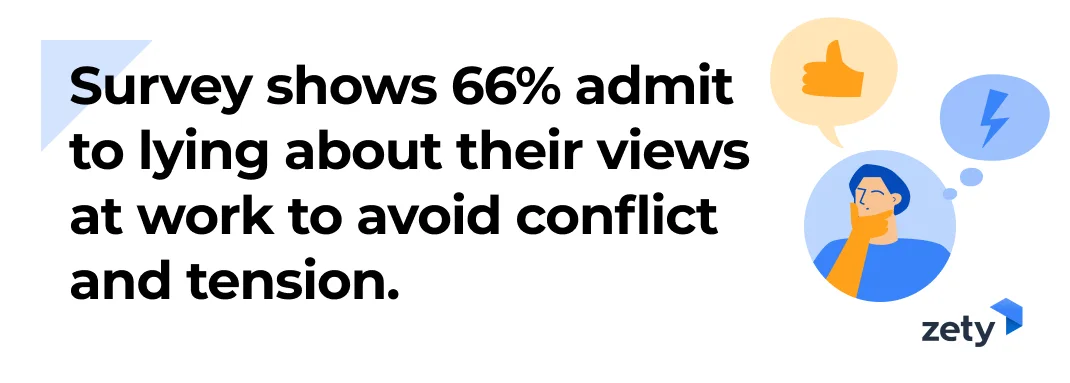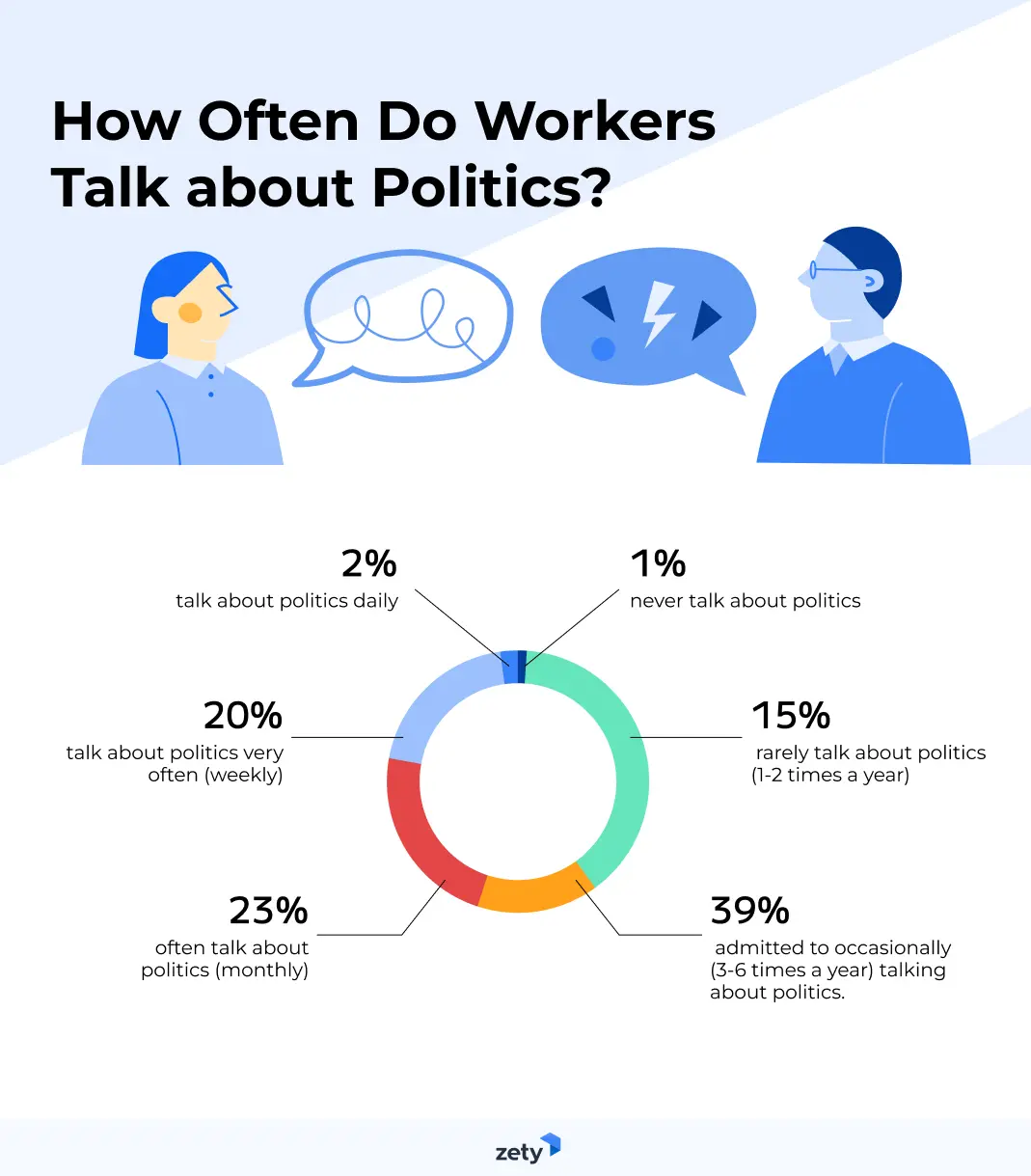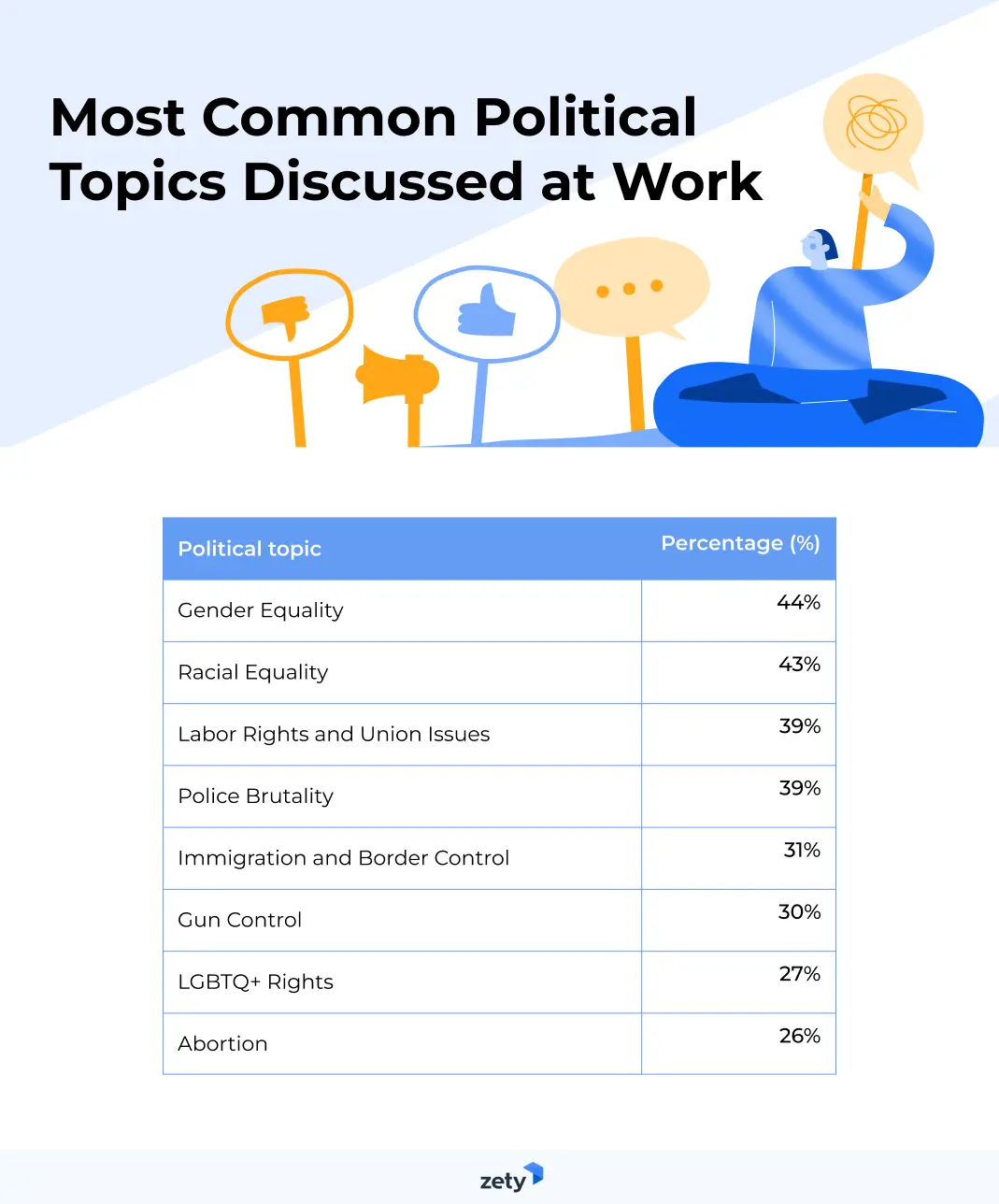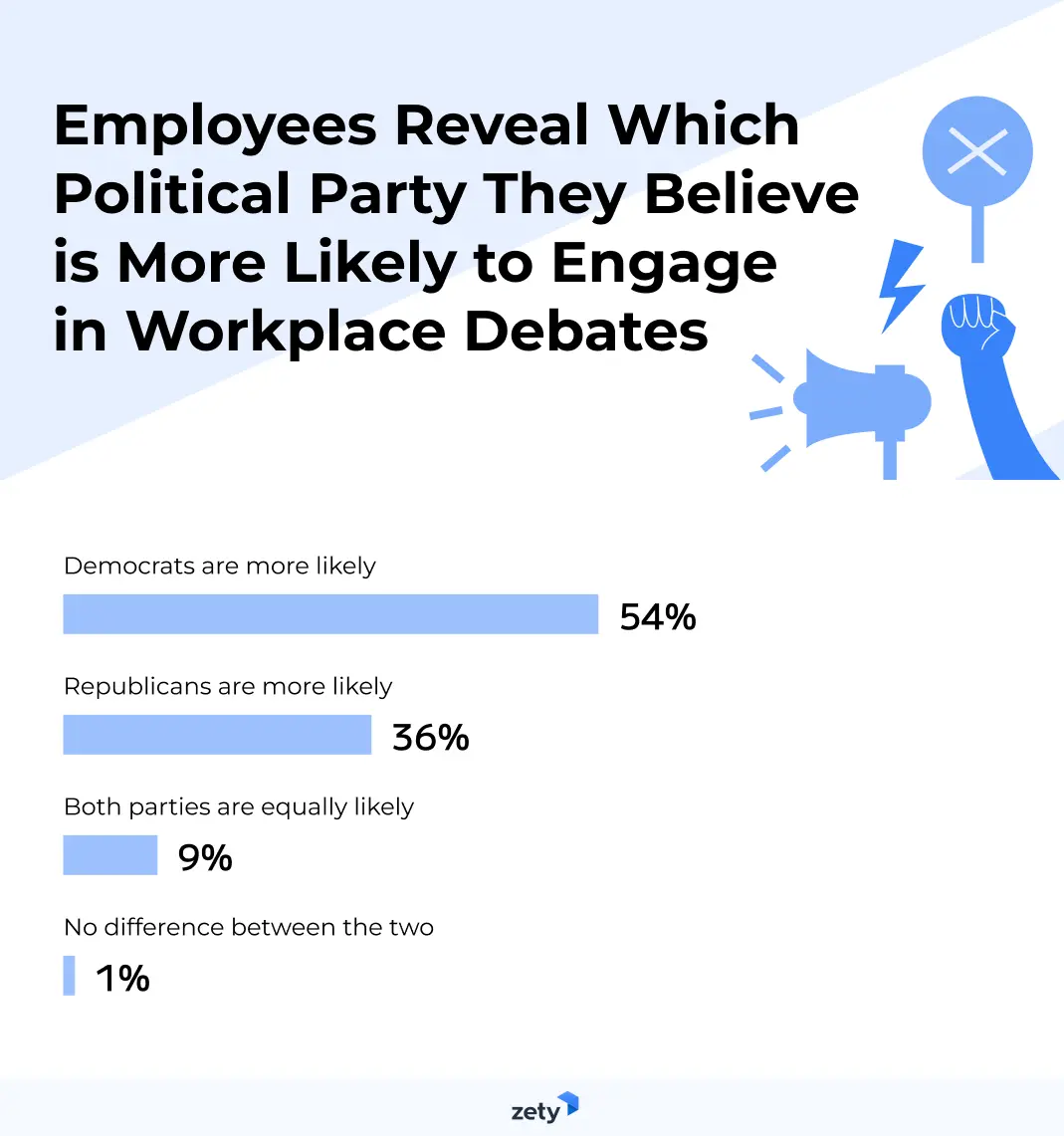75% of Workers May Leave Their Jobs Due to Political Environment
Create Your Resume Now
Even the workplace is not a safe haven in today's polarized political climate. With the election approaching and the political temperature rising, people are wishing work was a politics-free zone.
According to a new Zety survey, 75% of U.S. employees are considering leaving their jobs due to political discussions at work, while 60% believe political talk should be banned altogether.
The situation is so stressful that while 92% of workers confess to engaging in these discussions, 66% say they have lied about their political views to keep the peace with their colleagues.
Let’s examine the survey results, which shed light on the delicate balance between free speech and a harmonious workplace.
Prevalence of Political Discussions at Work

Participants reported a high prevalence of political discussions, with 92% of workers engaging in political discussions in the workplace.
When asked how often they discussed politics at work, there was a wide range of responses:
- 2% talk about politics daily
- 20% very often talk about politics (weekly)
- 23% often talk about politics (monthly)
- 39% admitted to occasionally (3-6 times a year) talking about politics
- 15% rarely talk about politics(1-2 times a year)
- 1% never talk about politics
Lying About Political Views
The survey revealed that 66% have lied about their political views at work. However, this practice is not uniformly distributed across all employee groups; it varies significantly based on job level, work environment and age.
- 94% of entry-level workers lie about their political views, compared to 44% of senior-level managers.
- 77% of remote workers have misrepresented their political stances, versus 51% of onsite employees.
- 83% of younger workers (25 years or younger) felt the need to lie, compared to 63% of their older colleagues (26 or older).
Top Motivations for Hiding Political Views
When respondents were asked about their motivations for hiding their political views at work, the survey revealed the following reasons behind this widespread secrecy:
- 41% fear negative consequences from the company, manager, or coworkers.
- 30% wish to avoid conflict and fit in with the team.
- 11% are uncomfortable sharing personal political beliefs at work.
- 4% fear of being judged or discriminated against.
Stances on Banning Political Talk and Company Policies
According to the survey, 60% of workers believe political discussions should be banned. This sentiment is particularly strong among remote, younger and entry-level employees.
- 80% of workers aged 25 or younger support a ban, compared to 56% of workers aged 26 or older.
- 80% of entry-level employees favor prohibiting political conversations, compared to 44% of senior-level managers.
- 65% of Democrats and 57% of Republicans agree that politics should be off-limits at work.
- 73% of remote workers think companies should ban political discussions, compared to 41% of onsite workers.
Meanwhile, 81% of workers acknowledge that their company has formal guidelines on political discussions, while 13% are not bound by such policies, and 6% are unsure of their company’s stance.
Most Common Political Topics Discussed at Work

Political discussions in the workplace often touch on deeply personal and emotionally charged topics, leading to a high potential for discomfort or distress. Here’s a breakdown of the most common political topics discussed at work:
- Gender Equality (44%)
- Racial Equality (43%)
- Labor Rights and Union Issues (39%)
- Police Brutality (39%)
- Immigration and Border Control (31%)
- Gun Control (30%)
- LGBTQ+ Rights (27%)
- Abortion (26%)
Impact of the 2024 U.S. Presidential Election on the Workplace

The upcoming 2024 U.S. presidential election is already influencing workplace dynamics. The polarization is reflected in how employees perceive heated political debates. When asked about who is more likely to engage in heated political debates:
- 54% think Democrats are more likely to engage in heated political debates at work
- 36% believe Republicans are more likely to engage in heated political debates at work
- 9% believe both parties are equally more prone to heated debates
- 1% see no difference between them
The Broader Implications for Workplace Culture and Retention
75% of workers are considering looking for a new employer due to their current political environment. The survey reveals concerns about how political climate affects employee retention and workplace culture among various age groups and experience levels.
Retention Concerns by Demographics:
- Gender differences: 81% of men consider seeking new employment because of the political climate, compared to 68% of women.
- Age factor: The impact of political discussions is even more pronounced among younger workers, with 96% of employees aged 25 or younger contemplating a job change. This contrasts sharply with 71% of those aged 26 or older.
- Experience level: Entry-level workers are particularly affected, with 89% considering leaving their jobs, compared to 67% of experienced workers.
Key Takeaways
The survey results emphasize that—fueled by today’s polarized climate—political discussions in the workplace often lead to tension that can make employees feel pressured to conceal their views. Further, the responses reveal that these types of conversations can disrupt team dynamics, making employees feel alienated and uneasy.
Companies must address these challenges by creating (or enforcing) policies designed to balance freedom of expression with a respectful workplace culture.
For press inquiries, contact Skyler Acevedo at skyler.acevedo@bold.com.
